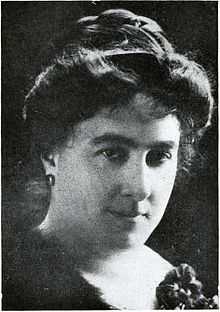| Women in society |
|---|
 |
|
|
|
|
|
|
|
|
|
|
 Feminism portal Feminism portal
|
|
Women in Uruguay are women who were born in, who live in, and are from Uruguay. According to Countries and Their Cultures, there is a "very high proportion" of Uruguayan women participating in the labor force of the South American country. And that Uruguayan legislation maintains that the women of Uruguay have equal rights to power, authority, and privileges". In reality however women are still not occupying "higher economic, professional, political, social, and religious positions".[3] In relation to the political arena, UN Women reported that a 2012 study made by the Inter-Parliamentary Union (IPU) ranked Uruguay as being "103rd out of 189 countries in terms of representation of women in Parliament" and that "only 12 per cent of the current members of the Chamber of Senators and Chamber of Deputies in Uruguay are women".[4]
Notable women
One prominent Uruguayan woman is Paulina Luisi. Luisi was a leader of the feminist movement in the country of Uruguay. In 1909, she became the first woman in the country to obtain a medical degree and was highly respected. She represented Uruguay in international women's conferences and traveled throughout Europe. She voiced her opinion on women's rights, and in 1919, Paulina started the force for women's rights in Uruguay. By 1922, the Pan-American Conference of Women named Paulina Luisi an honorary vice president of the meeting and she continued to be an activist until Uruguay gave women the right to vote.
See also
References
External links


